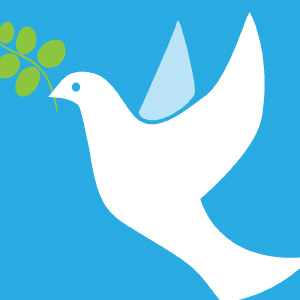Outlook skills - I recognize what I can change and what I can’t change.
- When I make mistakes, I remind myself that no one is perfect and then look at what I can learn so I don’t do it again.
- When I need to, I step away from a problem for a while to clear my head.
- I replace my negative self-talk or thoughts with more positive and realistic ones.
- I look for the positives in difficult situations.
- I look for and see the humor in difficult situations.
- I accept my own and others’ limits.
 Time-Management skills Time-Management skills
- When I’m feeling overwhelmed, I take things one step at a time.
- When I have too much to do, I set priorities and a realistic schedule.
- I plan carefully and set goals to determine how to best use my time.
- When I find myself procrastinating, I ask myself questions to determine what may be stopping me (Is the task still a priority? Do I have enough information to move forward?)
Personal-Care Skills - I exercise regularly to stay fit and reduce tension (aerobics, tai chi, yoga, etc.).
- I try to get enough sleep so I have the energy I need for my day.
- To keep up my energy level, I try to eat regularly during hectic times.
- I meditate or use deep-breathing techniques to relax.
- I treat myself well by including things and people I enjoy in my weekly activities,
- I balance my work and leisure time.
- I use alcohol only in moderation when I am feeling stressed.
- I take frequent time-outs when I am feeling overwhelmed.
Relationship Skills - When I have a problem, I talk it over with a friend or relative.
- I openly tell people my feelings instead of bottling them up inside or exploding later.
- I stand up for myself when there’s something I don’t like.
- When I don’t want to do something, I say no and set limits.
- When I’m not sure how to handle a problem, I ask someone for help.
- I ask for and show caring and affection.
Look over your list. Which categories of skills have few or no marks or are areas you would like to learn more about? We all have a variety of effective strategies for handling stress. However, we may get into the habit of using only a few responses all the time–even when those responses may not be helpful. Therefore, it’s always useful to consider expanding the number and kinds of strategies you can call on to reduce or manage stress. This is particularly important when stressors become problematic. Minaker KL, Burley D, Penny R, Haber D, Quinlan J, Coley C, Rosenthal D.
Stress Management Guidebook: Program for Lifelong Health Maintenance.
President and Fellows of Harvard College and Harvard University Health Services, Cambridge, MA. 1996. FOR MORE INFO. CHECK OUR PROGRAM, ‘INNER CALM,’ AND ‘A BRIEF RELAXATION EXERCISE WITH DR. LOCKEWOOD RUSH.’ | 

 Time-Management skills
Time-Management skills










